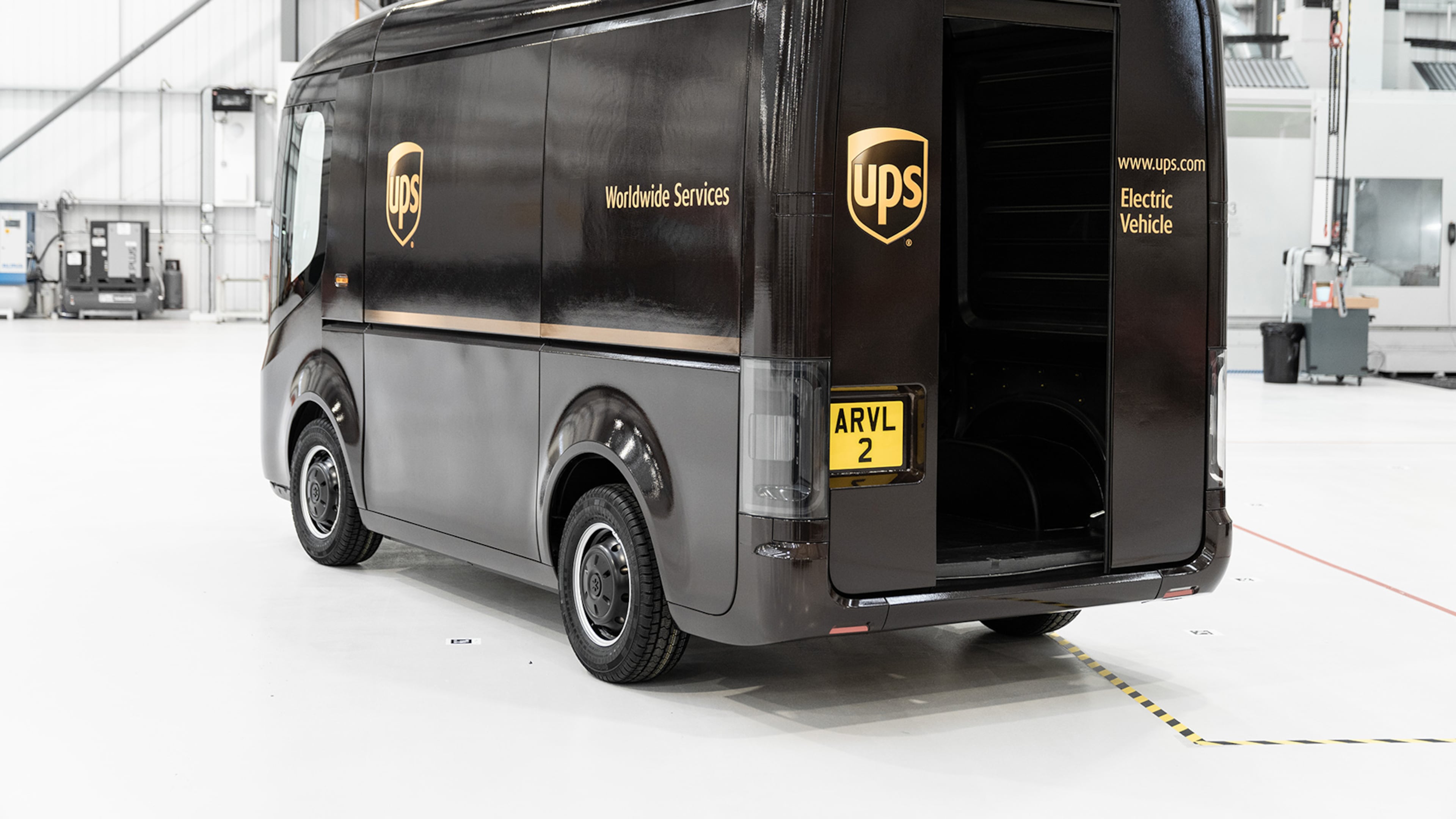UPS orders 10,000 electric delivery trucks, plans test of self-driving vans

Editor’s note: This article has been updated with additional details about UPS’s push into electric and self-driving vehicles.
UPS has ordered 10,000 electric delivery trucks from electric vehicle maker Arrival, in what it calls a move to accelerate fleet electrification.
It's the Sandy Spring-based shipping giant's largest-ever single order of electric vehicles.
The two companies are working together to develop electric vehicles with advanced driver-assistance systems, including the potential for automated movement in UPS depots --technology that it will test starting later this year.
UPS also announced it is partnering with Waymo to test autonomous vehicle package pickups in the Phoenix, Ariz. area. UPS said Waymo’s Chrysler Pacific minivans will shuttle packages from UPS Stores to a UPS sorting facility, with a driver on board to monitor operations. The technology allows the company to test later pickups at UPS stores.
The move comes after Waymo, the self-driving unit of Google parent Alphabet, in 2018 launched a pilot program in Atlanta to use a self-driving truck for deliveries to Google's data center, with drivers in the cabs to monitor systems and take control if needed.
The 10,000 Arrival electric delivery trucks will be delivered to UPS starting in the second half of this year through 2025.
UPS is also making a minority investment in Arrival through its venture capital arm UPS Ventures.
The Arrival vehicles will be purpose-built for UPS with advanced vehicle controls, and are expected to be deployed in Europe and North America.
UPS said it will also get priority access to buy more electric vehicles, contingent on successful tests of initial vehicles. Its investment in Arrival allows it to fast-track orders.
The shipping company has partnered with other companies for electric vehicles, including Workhorse Group Inc., and placed orders for other electric trucks, including Tesla Semi trucks. Out of more than 100,000 UPS vehicles globally, the company has about 10,000 alternative fuel vehicles in what it has called its "rolling laboratory" fleet.
UPS did not disclose the price it is paying for the Arrival order, but said Arrival electric vehicles are a "highly competitive value proposition" compared with traditional internal combustion engine vehicles and existing electric vehicles.
“Electric vehicles form a cornerstone to our sustainable urban delivery strategies,” said Juan Perez, UPS chief information and engineering officer, in a written statement. “Taking an active investment role in Arrival enables UPS to collaborate on the design and production of the world’s most advanced electric delivery vehicles.”
According to Arrival CEO Denis Sverdlov, vehicles can be created to meet UPS needs for driving, loading and unloading and back-office operations.
UPS announced the moves just before reporting a $4.4 billion profit for 2019.
While announcing results, UPS CEO David Abney said the company is investing in speeding up its delivery network with more automated sorting facilities, expanded weekend operations and new technology, including drone delivery service on hospital campuses.
The rush is driven by growth of Amazon one-day shipping and consumers’ demand to get their orders faster. Amazon is the largest customer for UPS.
“We’re embracing the e-commerce shift to faster delivery,” Abney said. “We are absolutely speeding up our network.”

